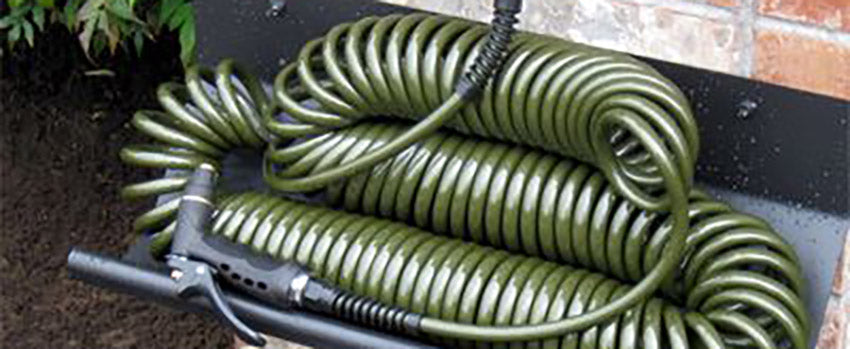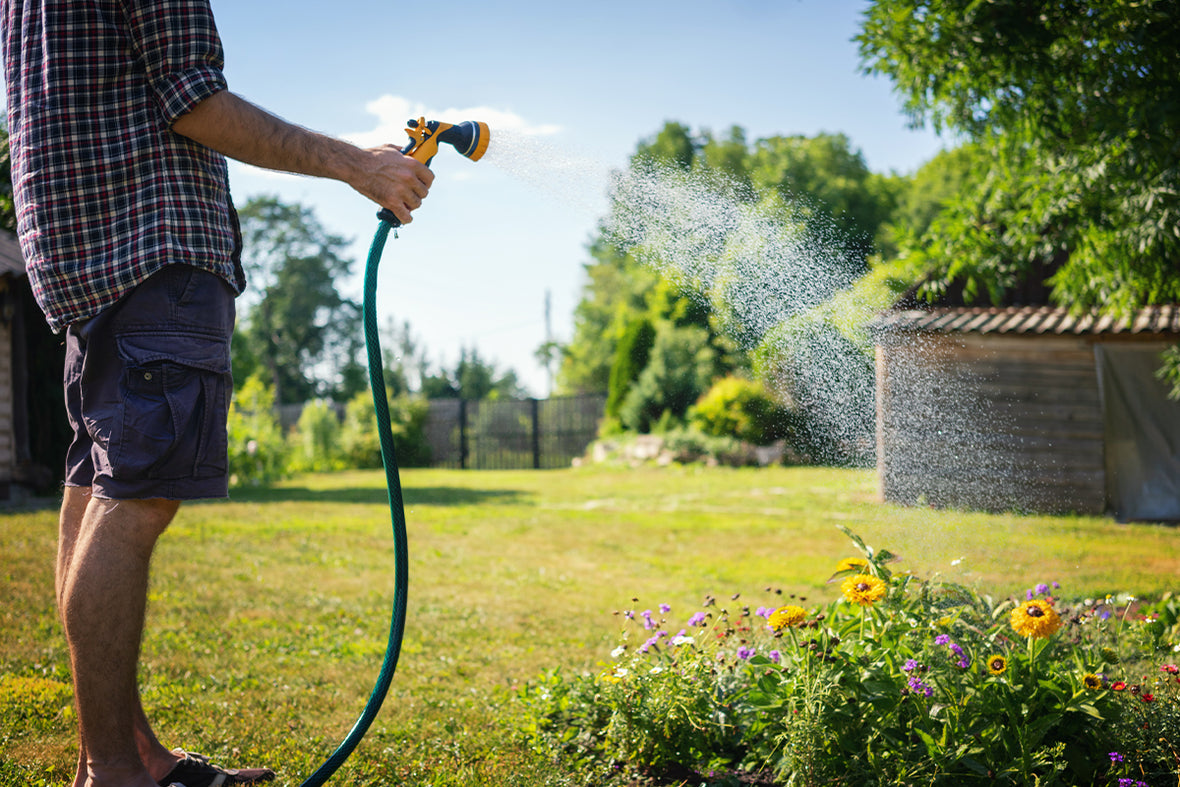
Garden hose types you need to know
Garden hoses play a crucial role in outdoor maintenance, but selecting the right one can make all the difference. Here’s a guide to help you choose the best hose for your needs this summer.
Traditional Garden Hoses
- Description: Versatile and used for a variety of tasks such as watering the lawn, cleaning patios, and washing cars.
-
Materials:
- Vinyl: Less expensive but prone to kinking and quicker wear.
- Rubber: More durable and longer-lasting, though heavier and harder to move.
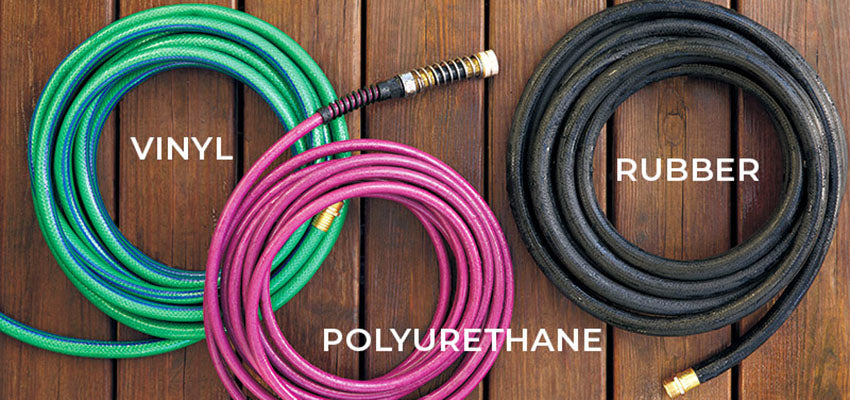
Light Duty Hoses
- Characteristics: Typically made from vinyl, may include reinforcing mesh or multiple layers. Often come with plastic fittings and thinner diameters.
- Best For: Light gardening tasks, infrequent use, short lengths (under 50 feet), and lower water pressure. Ideal for budget-conscious buyers.
- Where to Buy: Available online and at local home improvement stores or garden centers.
Heavy Duty Hoses
- Characteristics: Designed for demanding tasks such as use on farms or high-traffic areas. Made from durable materials that resist kinking and can handle heavy loads.
- Best For: Frequent use and rugged environments. Generally more expensive but offers superior durability.
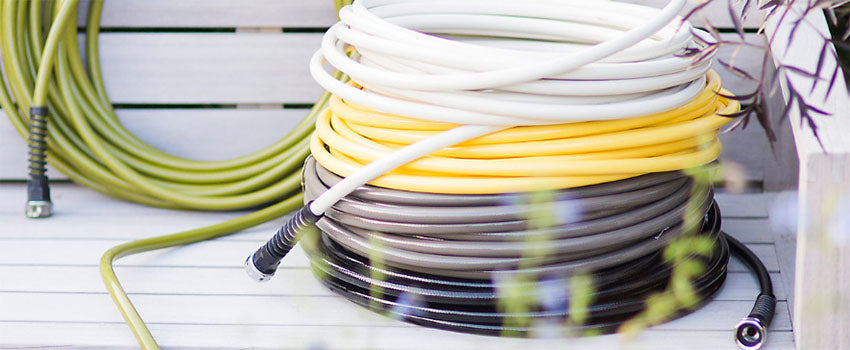
Expandable Hoses
- Characteristics: Expand up to three times their length when filled with water, lightweight (around 1 lb), and often come in bright colors. Usually ½ inch in diameter.
- Pros: Easy to store and handle.
- Cons: Tend to wear out quickly due to high water pressure and sunlight exposure. May not contract properly over time, leading to storage difficulties.
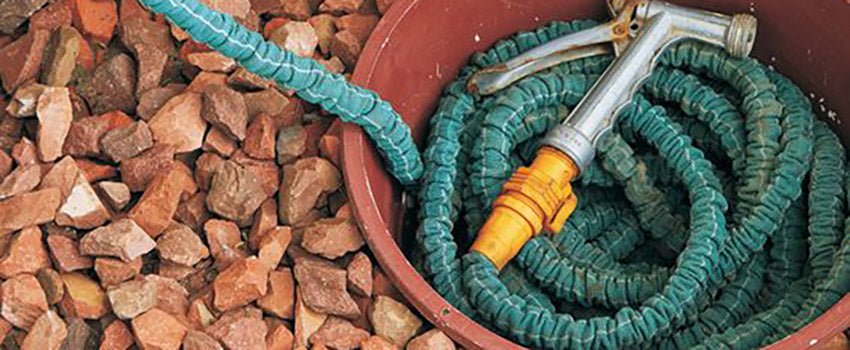
Soaker Hoses
- Characteristics: Ideal for planters and vegetable gardens. Provides deep watering, reducing the risk of disease for plants like roses.
- Best For: Deep watering plants planted in rows. Efficient for consistent watering without wetting foliage.
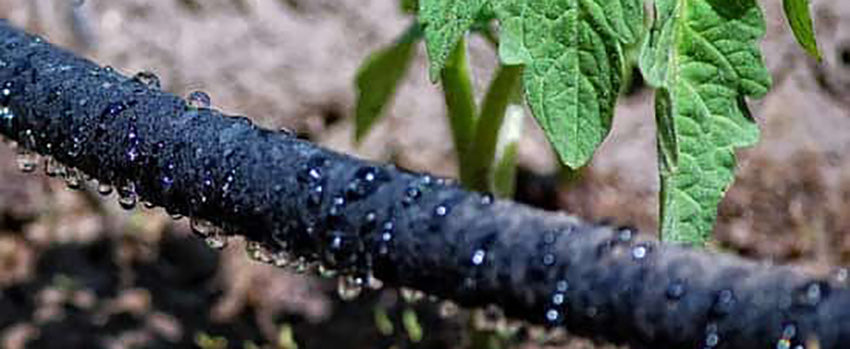
Coiled Hoses
- Characteristics: Formed into a tight spiral and extends for use. Common lengths are 15 feet and 25 feet with a ½-inch or smaller diameter.
- Pros: Convenient for small areas and easy to store in tight spaces.
- Cons: Lower water flow and pressure compared to standard hoses. Actual length may be slightly less than stated due to the coil.
